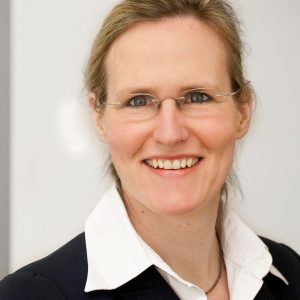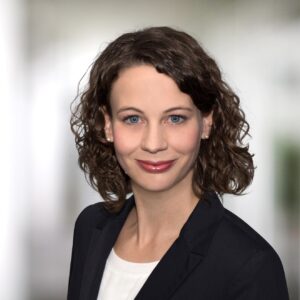The war in Ukraine is leading to rising prices for food, agricultural commodities and agricultural resources. This poses existential challenges for agriculture, increases price pressure in trade and exacerbates social inequality in nutrition. Food insecurity, malnutrition and undernourishment are on the rise in many countries of the Global South. Famine in Africa is rising in tandem with the devastation in Ukraine. In Germany and the European Union, people are just becoming aware that the earth’s resources are finite and that fragile international dependencies can quickly lead to shortages in the domestic food market.
How can we still succeed in feeding the world? Farmers and research institutions are working vigorously on a variety of solutions to ensure the population is fed and to avert the threat of food shortages. Out of necessity, some are proposing to intensify agriculture in peaceful countries, to return fallow land to agricultural use instead of leaving it to renaturation. So is conservation of nature a luxury we can’t afford at the moment?
The path towards a sustainable food system
What if the new awareness for the limits of natural resources, which has become increasingly established in recent years, does not fizzle out in the face of the crisis, but is the solution? If a greater proportion of land were used to grow food instead of fodder? If farmers could make a good living from their work without putting undue strain on their fields or animals? If conservation of nature was not seen as a luxury, but as a necessary basis of life? Then the crisis would contribute to a socially supported transformation toward a sustainable food system. But this would require a rethink and a change in behavior in politics, business and society.
Everyone sees the need for change, but there is no shared vision
Nutrition is such a complex issue that there are no simple solutions. Everything is interconnected: agriculture, food processing, trade, export, import, consumers, waste management. And each and everyone has their own interests. But the need for change is before everyone’s eyes. Against the backdrop of the Ukraine war, citizens as well as stakeholders in the agricultural and food sector are reassessing the situation. And yet it is a long way from a general understanding of the problem to a shared vision that will actually bring about change.
The most pressing questions
However, the change towards a sustainable diet is urgently needed. Science agrees that the current diet of rich countries consumes too many resources and promotes unforeseeable negative consequences for the planet. The goal is clear, only the way to get there is not yet.
From our perspective, the most pressing questions for the development of a sustainable food system for Germany are:
- How can the population be fed, both short term and long term? The plant-based foods grown at the moment are not sufficient to supply the population with local products; this is especially true for vegetables and fruit. What should fields and pastures be used for? How can new forms of cultivation strengthen sustainability and at the same time achieve a high yield?
- How can a transformation of the agricultural economy succeed that does not deprive farmers, growers and ranchers of their livelihoods but strengthens them for the future? In what order do adjustments need to be made in livestock management, cultivation and processing so that action can be taken that is both economically and ecologically sustainable?
- What is the right mix of quick-action and long-term measures for climate protection, for example, to reduce rapidly degradable methane gas in the short term, but to reduce the more important CO2 emissions in the long run?
- How can policymakers involve the public in making the necessary changes? What does effective support for the most vulnerable look like? What is reasonable and where are limits to public acceptance? What has to change first: demand on the population’s side or supply on the market?
Dialogue across all levels is key for the transformation
We believe that the most pressing issues are to be solved in a dialogue process between the relevant stakeholders. We specialize in bringing different positions to the table to agree on universally accepted facts and then jointly shape the path to a sustainable and resilient food system. We are already assisting this dialogue-driven transformation process in politics and society, at all levels:
- At the federal level, ifok conducts the nationwide Citizens’ Council on Sustainable Nutrition on behalf of the Federal Ministry for the Environment, Nature Conservation, Nuclear Safety and Consumer Protection and the Federal Environmental Agency. Citizens explore which political measures are supported by society in order to achieve a more plant-based diet in Germany.
- At the state level, ifok supported the key issue of sustainable nutrition as part of the Hesse Sustainability Strategy last year.
- At the municipal level, ifok supports cities such as the city of Burghausen with a citizens’ council on sustainability, enabling them to conduct the dialogue as a city community. After all, municipalities are the engine of transformation.
On an institutional level, ifok provides practical on-site support to the Engelberger Schulverein e.V. on its way to a sustainable canteen.
Solutions can only be found together
A multi-layered social dialog has been initiated. Now, concrete measures for sustainable nutrition in Germany must emerge from this, which are designed and implemented by the (agricultural) industry, politics and civil society in a process of dialog and participation.
Let’s shape the change together now!
Questions? Talk to us!

Dr. Margit Aufterbeck-Martin
Business Unit Manager | Health and Society
| Phone | +49 89 262029303 |
|---|---|
| margit.aufterbeck@ifok.de |

Julia Wirth
Consultant | Sustainability, Mobility, Health
| Phone | +49 6251 8263159 |
|---|---|
| julia.wirth@ifok.de |
